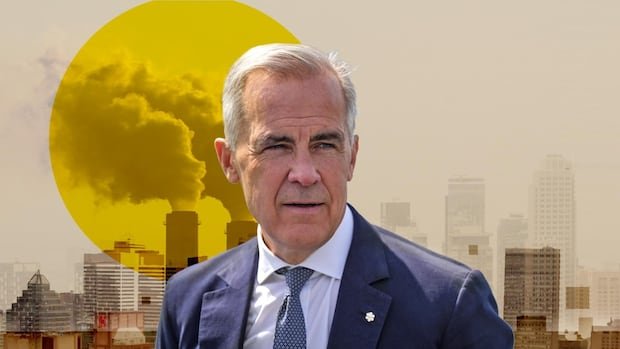Prime Minister Mark Carney is under increasing pressure to address climate change as Canada faces another severe wildfire season and scorching summer temperatures. Despite being in office for five months, it remains uncertain if Carney will continue with the deep emissions reductions set by his Liberal predecessor.
The urgency for action is heightened as Canada approaches a critical juncture, with a deadline of five years to achieve or closely approach its international climate commitments. These commitments mandate a reduction of carbon pollution and other greenhouse gases by at least 40% below 2005 levels by 2030.
According to Simon Donner, the country’s top climate adviser and co-chair of the Net Zero Advisory Body, meeting these targets will require significant efforts, as experts predict that the 2030 goal may not be met. Former deputy minister Serge Dupont also expressed skepticism about reaching the targets but emphasized the importance of making a strong effort.
While Environment and Climate Change Minister Julie Dabrusin reaffirmed Canada’s commitment to achieving net-zero emissions by 2050, concerns arise as current greenhouse gas projections indicate that the country is falling short of its climate goals. The data suggests that Canada is likely to miss its interim 2026 target and potentially its 2030 target as well.
Despite some progress in decarbonizing the electricity sector, gains have been offset by increased emissions from the oil and gas industry, which remains a significant contributor to Canada’s overall emissions. Carney’s stance on addressing the fossil fuel industry’s impact on emissions remains unclear, although there are unfinished climate policies from the previous administration that could be revisited.
Efforts from advocacy groups like Last Generation underscore the call for urgent action on climate change, with demands for a national climate disaster agency. The group has engaged in civil disobedience activities to draw attention to the climate crisis and push for tangible solutions.
As the government navigates its climate agenda, questions linger on how Carney will balance economic interests with environmental concerns. There are indications of potential policy shifts, including support for renewable energy projects and considerations for major infrastructure projects that could impact emissions targets.
While challenges persist in meeting Canada’s climate goals, stakeholders emphasize the need for a transparent and effective strategy to address climate change. The Carney government is expected to provide updates on its emissions reduction plan and demonstrate its commitment to fulfilling Canada’s climate obligations.

